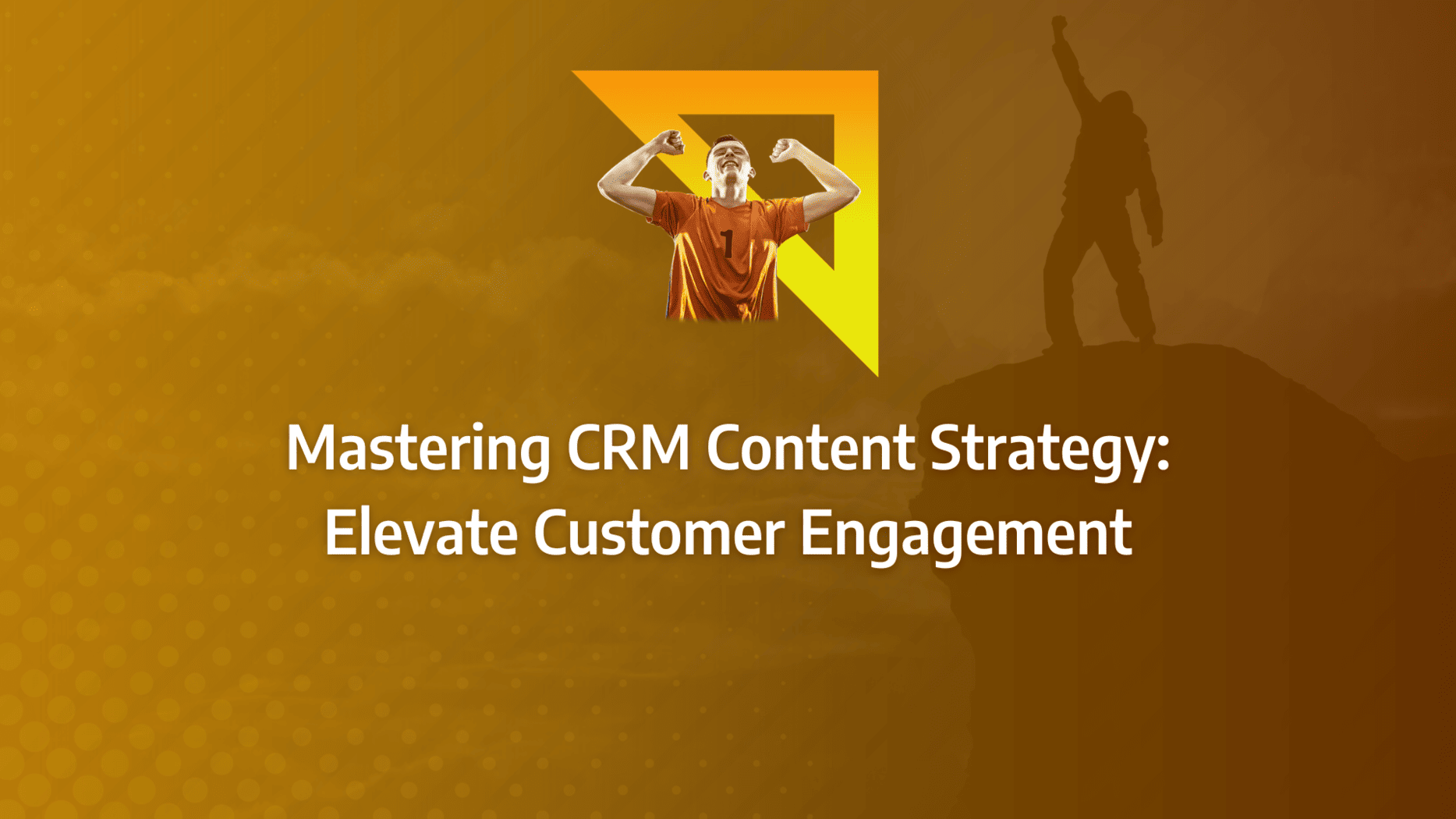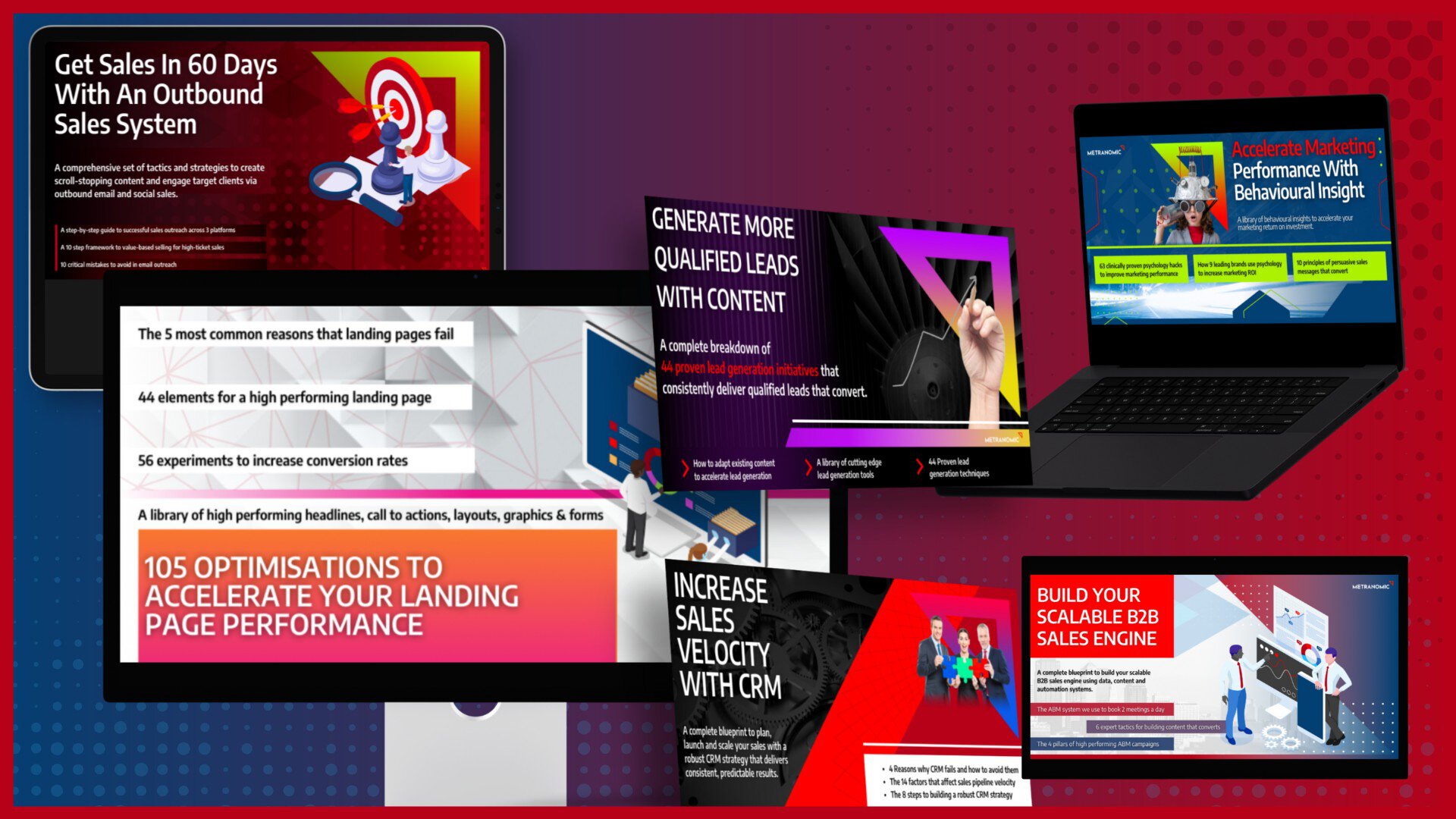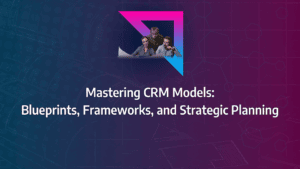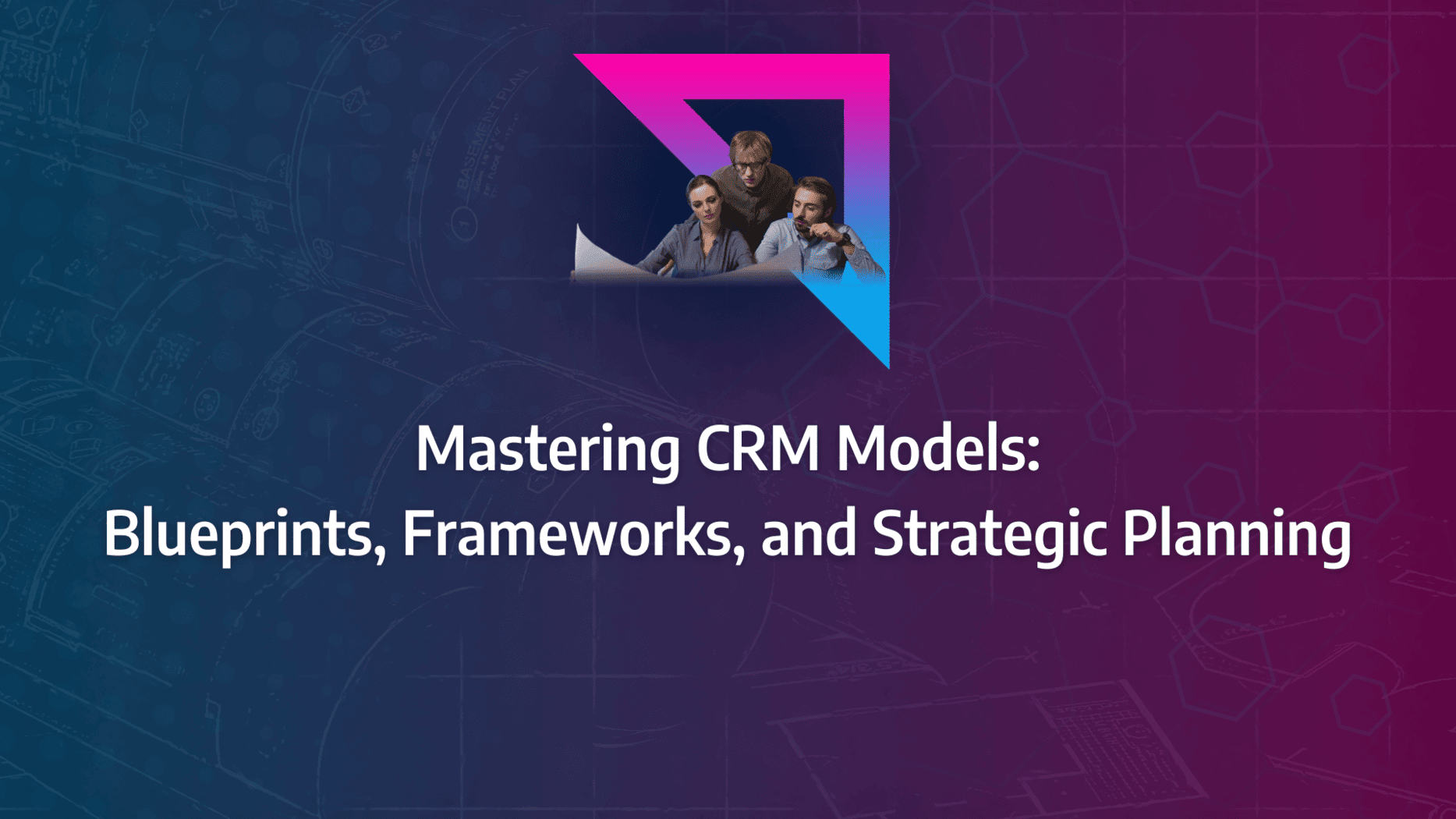Businesses are constantly seeking ways to strengthen their customer relationships and drive engagement. One of the most effective ways to achieve this is through a well-crafted CRM content strategy. But how can you ensure your content resonates with your audience across various channels?
Leading companies have successfully used CRM data to personalise and optimise their content, resulting in higher engagement and customer loyalty. This post will guide you through the key strategies and insights needed to master your CRM content strategy, from leveraging data-driven approaches to crafting compelling narratives that speak directly to your customers.
- Leverage CRM Data: Utilise your CRM data to personalise content, ensuring that it resonates with your audience and drives engagement across all channels.
- Create Compelling Narratives: Focus on crafting content that tells a story and connects emotionally with your audience, making it more likely to foster customer loyalty.
- Optimise Content Distribution: Ensure your content is distributed through the most effective channels, maximising reach and engagement with your target audience.
- Measure and Adjust: Regularly measure the effectiveness of your CRM content strategy and be prepared to make adjustments based on the data to continuously improve results.
- Align with Customer Journey: Tailor your content strategy to align with different stages of the customer journey, providing relevant information that guides them through the sales funnel.
How can I use CRM content to nurture leads effectively?
CRM content is pivotal in nurturing leads, driving sales, and supporting marketing, customer service, and overall engagement. Effectively messaging and engaging customers at every touchpoint throughout their journey is crucial. Mapping CRM content to each stage of the funnel ensures a targeted approach that aligns with customer needs, even when employing an Account-Based Marketing (ABM) strategy, which often inverts the traditional funnel.
What Matters Most?
In our work, a crucial element in CRM content strategy is ensuring that the content you produce serves as a cohesive narrative, weaving together the customer experience across all touchpoints. Clients often discover that aligning content creation efforts closely with the customer journey leads to a more personalised and relevant customer experience. Typically, leveraging CRM insights to guide content development allows you to preemptively address customer concerns and needs, resulting in stronger, more trusted relationships over the long term.Get In Touch
The Role of Content Marketing in CRM
Content marketing plays a significant role in CRM content strategy, enabling businesses to plan and maintain reliable and cost-effective sources of website traffic and new leads. A single blog post, crafted with SEO optimisation, can generate consistent organic traffic, embedding links to e-books or free tools that continue to yield leads long after publication.
This steady stream of traffic and leads allows businesses the flexibility to explore various CRM marketing channels and other revenue-generating CRM tactics, such as sponsored content, social media advertising, and distributed content. Moreover, well-crafted CRM content not only attracts leads but also educates target prospects, thereby increasing brand awareness and credibility.
By integrating a robust CRM content strategy, businesses can effectively leverage their content to support lead nurturing, enhance customer engagement, and ultimately drive growth across multiple CRM marketing channels. This strategic approach ensures that content remains an integral component of the broader CRM tactics, fostering long-term customer relationships and sustainable business growth.
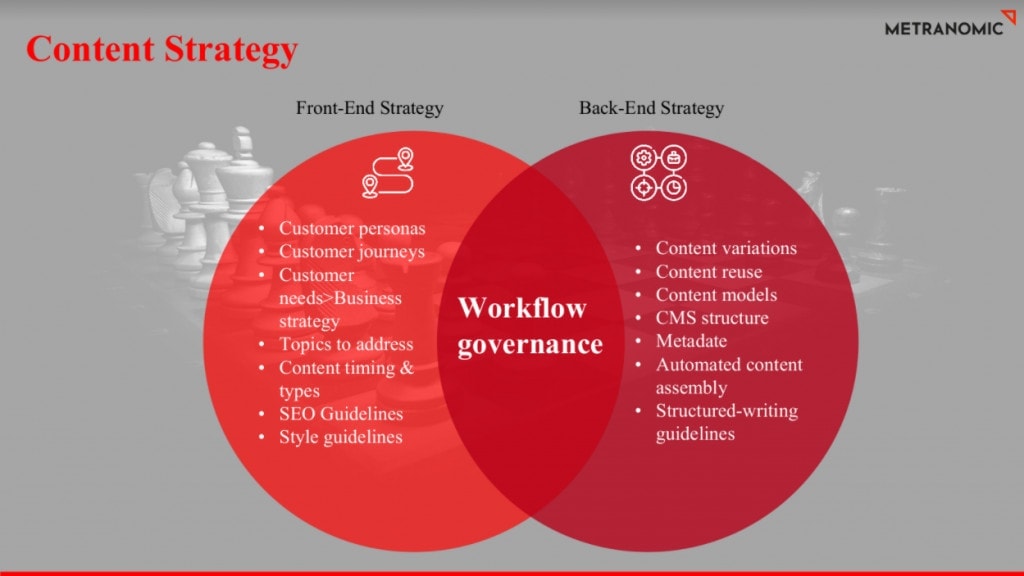
What are the five key content formats for CRM strategies?
A wide array of content formats is available to marketers, each serving a unique purpose within a comprehensive CRM content strategy. Below are five content formats to consider:
Whitepapers
Whitepapers are invaluable for knowledge sharing, helping to establish thought leadership and credibility within your industry. They are also potent lead generation tools and can significantly enhance brand awareness. Typically, effective whitepapers will:
- Focus on addressing customer pain points.
- Demonstrate practical solutions.
- Maintain consistent company branding.
- Include links to your website.
- Feature strong calls to action (CTAs).
- Utilise clear, crisp visuals.
- Be published in PDF format.
- Consider gating content to capture leads.
Ebooks
Ebooks, generally shorter and more interactive than whitepapers, often focus on multimedia content and provide engaging “how-to” guides. These are designed to build utility and trust rather than solely aiming for thought leadership. Ebooks typically:
- Focus on solving customer pain points.
- Demonstrate practical solutions.
- Employ engaging multimedia and graphics.
- Include links to your website.
- Feature strong CTAs.
- Experiment with various formats.
- Avoid gating content to help the message spread.
Infographics
Infographics are excellent tools for using data to tell a compelling story. To maximise their effectiveness, infographics should:
- Focus on 8–12 key pieces of data.
- Include references or footnotes on data sources.
- Use graphic elements extensively to illustrate points rather than relying solely on numbers and statistics.
Blogs
Blogs allow businesses to document their activities through long-form text and imagery, contributing to increased SEO rankings when strategic keyword dispersal is utilised. Blogs provide a platform for sharing insights, updates, and thought leadership, driving organic traffic and engagement.
Video Content
Video content is currently the most consumed format on the web, with 87% of content marketers incorporating video into their online strategies. Notably, more than 50% of video views occur on mobile devices. Given the sheer volume of video content, audience retention rates are decreasing, making it crucial to create concise videos. Effective video content should:
- Be simple and easy to understand.
- Feature branding within the first five seconds.
- Aim for a duration of 20-30 seconds to maintain viewer interest.
Integrating these formats into your CRM content strategy across various CRM marketing channels can significantly enhance engagement and lead generation. By experimenting with these content types, marketers can identify the most effective CRM tactics to drive results and foster stronger customer relationships.
How to Create a Comprehensive CRM Content Strategy
Long-term planning is essential for focusing on your company’s goals, anticipating challenges, and effectively allocating resources. Following these seven steps will help you develop and implement a robust CRM content strategy that aligns with your business objectives and customer needs.
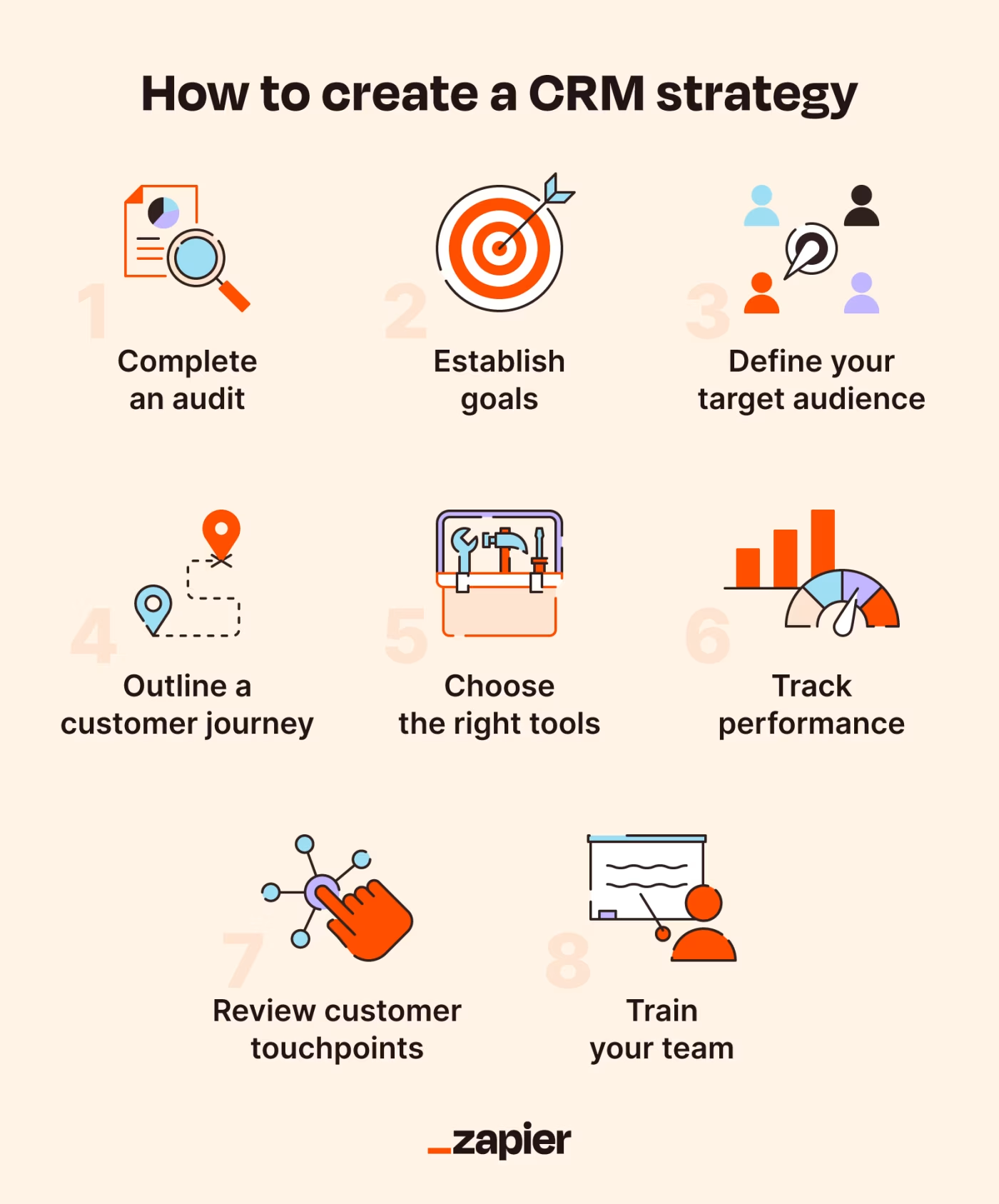
Step 1: Audit Your Existing Content
A thorough audit of your existing CRM content is the first step. This involves collecting all current content and analysing data to understand what works for your audience and brand. Identify which types of content attract your audience, generate the best results, and areas that need improvement.
Step 2: Establish Your Content Marketing Goals
Clearly defined goals are crucial for a successful CRM content strategy. Ensure every piece of content builds towards meeting these goals, organised in a hierarchical manner. Start with overarching goals related to your company’s vision and mission, then outline specific long- and short-term goals that your CRM content can help achieve. Prioritise long-term strategic goals over operational ones to ensure sustained success.
Step 3: Determine Your Audience
Understanding your audience is key to creating effective CRM content. Research their lifestyles, concerns, problems, and needs to tailor your content accordingly. This knowledge will help you attract and engage your target audience more effectively.
Step 4: Develop an Editorial Plan
An editorial plan is crucial for managing your content production. It allows you to allocate resources efficiently, monitor workflows, and adjust expectations as needed. Key components include:
- Prioritising actions
- Identifying relevant topics
- Using an editorial calendar to organise your work
Step 5: Plan Content Production
Consider the purpose of each content piece before creation. Ensure your CRM content supports prospects at every stage of the customer journey, fostering long-term relationships. Address the following stages:
- Awareness Stage: Focus on content that answers initial questions and informs leads about your brand, such as educational articles, brand stories, and entertaining content.
- Consideration Stage: Provide in-depth information to help prospects understand their needs and how your solutions can help, including guides, case studies, and detailed analyses.
- Decision Stage: Showcase why your brand is the best choice through customer testimonials, reviews, and specific work examples.
- Retention Stage: Offer content that helps customers get the most out of your product or service, addresses common issues, and introduces new features.
- Advocacy Stage: Highlight your brand’s unique aspects, such as corporate values and community efforts, to turn satisfied customers into brand advocates.
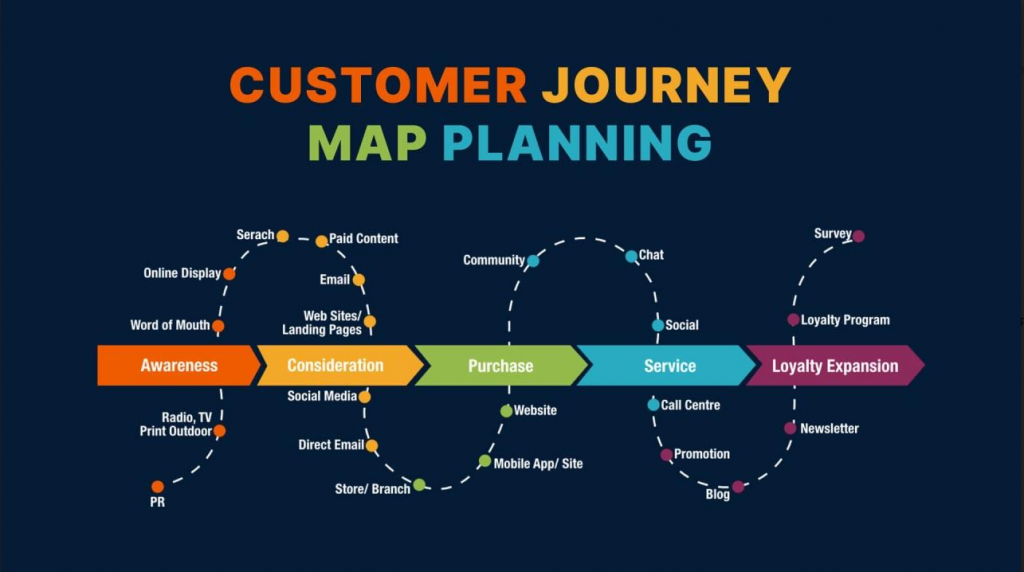
Step 6: Plan Content Distribution
A core element of any effective CRM content strategy is the development of owned media. Earned media and paid media complement this by enhancing reach and engagement. A comprehensive content distribution strategy integrates all these elements seamlessly.
Create an Integrated Omnichannel Experience: Providing omnichannel communication is vital to keeping your brand at the forefront of your audience’s mind. By aligning your brand messaging and goals across multiple CRM marketing channels, you ensure that your audience receives a consistent and clear picture of your brand’s value and offerings.
Identify the Most Relevant Channels: It is essential to allocate resources to the channels where your audience spends most of their time. Utilise specific social media analytics and demographic data to determine which channels are most effective for engaging your target audience and which may be less effective or a waste of budget.
Automate Social Media Posting: Creating a seamless user experience across different social media channels can be time-consuming, but automation tools can simplify this process. Automating your social media posts saves resources and ensures that your content is posted accurately and timely, maintaining consistent engagement with your audience.
Step 7: Analyse Your Content Performance
Regular analysis of your content performance is critical to understanding what resonates with your audience. This insight helps in determining what content to produce next, ensuring it continues to meet audience interests and needs.
Content Metrics to Consider
Analysing content performance involves examining various metrics, which can be categorised into four main areas:
- User Behaviour: Monitor unique visitors, pages per session, and bounce rate to understand how users interact with your CRM content.
- Engagement: Track likes, shares, comments, and mentions to gauge how engaging your content is.
- SEO Results: Evaluate organic traffic, dwell time, and backlinks to assess the effectiveness of your content in driving search engine visibility.
- Company Revenue: Measure the number of leads, existing leads affected, and conversion rate to determine the direct impact of your CRM tactics on business growth.
By continuously monitoring these metrics, you can refine your CRM content strategy, ensuring it remains aligned with your business goals and audience preferences.
Our Tactical Recommendations
From our experience, clients often find success by focusing on creating modular content that can be repurposed across different channels and formats, ensuring maximum reach and efficiency. It is typically beneficial to integrate marketing technology tools with CRM to automate and personalise content delivery, scaling your efforts without sacrificing relevance. Additionally, using CRM data to regularly identify content gaps and opportunities allows you to refine your strategy in real time, ensuring that your content remains both current and impactful.Get In Touch
What tactics can I use to reactivate deals in my CRM pipeline?
Effectively leveraging CRM content can help transform at-risk customers into long-term buyers. Here are six CRM tactics to reinvigorate your CRM pipeline:
1. Onboarding Surveys: Initiate your relationship with new customers by conducting onboarding surveys. By asking a few targeted questions, you can gain insights into why they are interested in your business and what they hope to achieve. This early engagement helps identify their needs and reasons for choosing your product over competitors.
2. Abandonment Messages: Abandonment messages are crucial for re-engaging customers who have left items in their cart or exited your site without completing a purchase. With a 99% open rate, SMS is an effective medium for these messages. Utilise abandonment messages to address the reasons why customers may have lapsed, encouraging them to return and complete their purchase.
3. Targeted Marketing: Targeted marketing allows you to personalise ads based on customer behaviours, interests, and past purchases. According to a survey by Adlucent, 57% of Internet users are more likely to click on an ad from a known company tailored to their interests. Use targeted ads to reactivate lapsed customers by offering personalised promotions on the platforms they frequent, such as social media or YouTube.
4. Content Marketing: Content marketing plays a vital role in re-engaging lapsed customers. Sometimes, customers drift away due to waning interest in the industry or products. Entertaining and educational content, like videos and blogs, can reignite their passion. With 93% of B2B marketers using content marketing, it’s a proven strategy to reach and re-engage your audience effectively.
5. Reminder Messages: Pay attention to customers who have missed their regular purchases or failed to re-subscribe to your services. The longer the gap, the less likely they are to return. Sending timely reminders to stock up or re-subscribe can prevent temporary lapses from becoming permanent. Integrate these reminders with your account management system to automate re-engagement messages based on customer activity.
6. Get Feedback: Collecting feedback from customers who are leaving or have left can provide critical insights. Understanding why customers have lapsed enables you to address those issues directly and reduce your churn rate. Use this feedback to refine your CRM content strategy and improve customer retention.
Tips to Optimise Outreach with CRM Content
1. Get a Better Sense of Your Target Audience: The best CRM for marketing can significantly enhance your understanding of your audience. By analysing trends, preferences, and behaviours across different locations and generations, you can gain a comprehensive view of how your target customers interact on social media and the platforms they use for brand discovery and online shopping.
2. Determine the Metrics to Use: A critical component of any CRM content strategy is identifying the right metrics to measure the effectiveness of your marketing campaigns. CRM systems help you pinpoint these metrics, enabling a deeper understanding of your content marketing strategy’s impact and success.
3. Send Personalised and Targeted Messages: CRM software, integrated with automated email marketing tools, revolutionises customer interactions. With access to detailed customer information, you can craft personalised and targeted email messages based on customers’ behaviours, preferences, and social activities. This personalisation is a key aspect of effective CRM tactics.
4. Process Automation: CRM tools streamline the management of customer interactions and business processes across customer service, sales, and marketing. Understanding various CRM marketing automation examples allows you to guide prospects efficiently through their purchasing journeys, enhancing overall customer experience.
5. Optimise and Leverage Your Marketing Campaigns: One of the most significant advantages of CRM software is its ability to facilitate effective decision-making. By providing precise data, CRM systems eliminate the guesswork in evaluating marketing campaign performance, allowing for streamlined and optimised campaigns.
